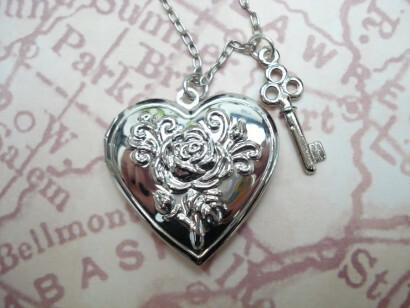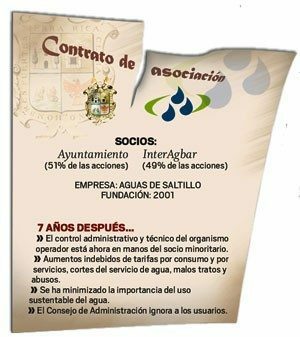Essay on Animal Abuse
Miscellanea / / November 29, 2021
Essay on Animal Abuse
Animal abuse in contemporary industrial society
The relationship of the human being with animals it has been, since ancient times, marked by an ambiguous sentiment. On the one hand, we recognize them as our companions on this strange journey that is life; but at the same time we see them almost as objects, that is, as inferior beings at our entire disposal, to satisfy with they not only our hunger and our need, but also our ambitions and the endless cruelty that characterizes our species.
A glance at the tales of yesteryear is enough to convince us of this: the classic references to Ulysses' dog in the Odyssey —The only one to recognize him despite the years that have passed—, the biblical serpent that convinced Eve to taste the apple or the repertoire of real beings and fantastic that composed the medieval bestiaries give us an idea of how animals have always served as a mirror in which the human being has to look at each other.
However, never before in the history of our species did we have so much influence over the fate of animals as now. Not only because ecological destruction threatens the
habitat of millions of species, which in itself is quite serious; but because we breed numerous domestic species as we please, subjecting them in many cases to a brief and painful existence within the industrial food circuit.In fact, a look at the living conditions of farmed animals in most of the facilities of the world is enough to place us at a moral crossroads, since it breaks the comfortable mirage that sustains the consume of food in modern urban societies, where meat "appears" on store shelves, without us knowing or wondering where it comes from and in what way. This is something that the vegan and animal defense movements know very well: the distance between consumption and the death of the animal is key in contemporary sensibility.
Protected animals and slaughtered animals
This does not mean that contemporary citizens are indifferent to animal suffering; in fact, we may be far more sensitive to it than rural generations, raised in close contact with slaughtering poultry and farmed animals for food. However, the latter have a greater awareness of what the consumption of animal meat implies: they have seen directly from where it comes and how it is obtained, and this may imply, paradoxically, a greater degree from I respect for life.
The same does not happen in urban societies, which grow up with their backs to the existence of slaughtered animals. It is common that when asking a city child where the chops come from, they answer that they are from the supermarket. This is because in his world there are domestic animals or companionship, with whom he develops a deep empathic bond: cats, dogs, even birds and fish that cohabit the home and are part (albeit accessory) of the family. The idea of Some animals are worthy of preserving and caring for, and others should instead be used as an industrial product is, deep down, contrary to the empathy, unacceptable input.
In fact, animal cruelty is typified in many modern legal orders, but almost always limited to domestic and empathetic animals, that is, to protected animals. The image of a man beating a dog, or young people locking a cat in the washing machine can be outrageous and We almost always hope that justice will be done, that is, that the laws protect the defenseless subject, that is, the animal. But if the same criteria were applied to the meat, poultry or fish industry, it is likely that none would remain in place: the conditions of overcrowding, continuous abuse, neglect and disease in which the animals we feed on live are public and notorious knowledge.
The dilemma of cruelty
Cruelty is defined, at least according to the dictionary of the language, as "inhumanity, fierce spirit, impiety." The first of these concepts is still paradoxical, since cruelty, as such, is exclusive to the human being. There is no cruelty in nature, although it can be relentless in itself: the predator he devours his prey without any remorse and without questioning his pain, because that is the path to his own survival. But without also obtaining a particular enjoyment in this regard. Animals are amoral: they do what they do guided by their instincts, without choice, without internal debates.
The human being, on the other hand, is endowed with consciousness and the ability to imagine the consequences of his actions, and to empathize with the suffering of others living beingshuman or not. Therefore, indifference to the pain of others belongs exclusively to him and is a clear indication that something is wrong in the mental aspects. Not for nothing is cruelty to animals taken as a clear and recognizable symptom of personality disorders in adults and adolescents.
So, if we are willing to sanction individual cruelty, and to sympathize with the suffering of a living being who suffers just as we suffer, how is it that animal abuse is tolerable when it occurs in terms industrial? Why does it not arouse the same outrage, why is it not actively prosecuted by the law? And, finally, a much more worrying question: What does it say about us, as a civilization, that we are willing to live happily with suffering? massive, continuous and total of millions of living beings, with the sole purpose of consuming their flesh, their skin or to try our products on their defenseless bodies cosmetics?
References:
- "Essay" in Wikipedia.
- "Cruelty to animals" in Wikipedia.
- "Animal abuse, a problem beyond social conscience" in The country (Spain).
- "Animal abuse: prelude to social violence" in Anima naturalis.
- "Animal abuse" in Telesur.
What is an essay?
The test it's a literary genre whose text is characterized by being written in prose and by addressing a specific topic freely, making use of the arguments and the author's appreciations, as well as the literary and poetic resources that make it possible to embellish the work and enhance its aesthetic features. It is considered a genre born in the European Renaissance, fruit, above all, from the pen of the French writer Michel de Montaigne (1533-1592), and that over the centuries it has become the most frequent format to express ideas in a structured, didactic and formal.
Follow with:


